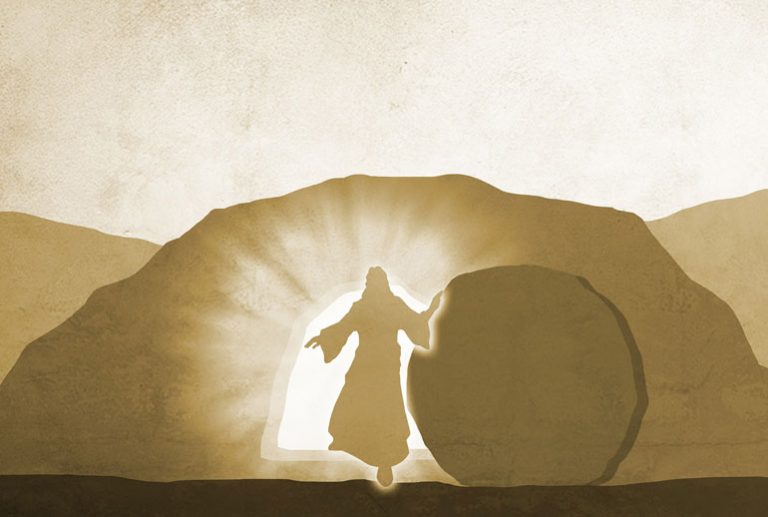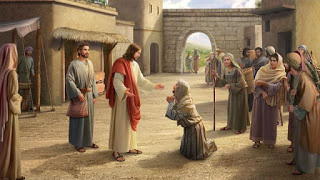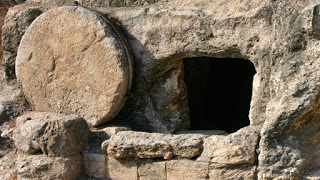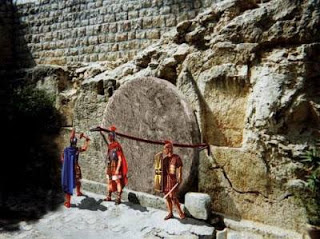The disciples were the people closest to Jesus throughout His apostolic ministry. They listened to His teachings directly and were gradually transformed in character and temperament, being formed to become builders of the Kingdom of Heaven. Over time, they moved away from their traditional Jewish worldview and embraced the one the Master taught them—by His words and His example.
Where, then, would they have found the spirit of vandals, deceivers, or criminals, capable of executing such a Machiavellian plan as stealing the body of their Master—without any respect for the dead or for His family—just to deceive the public with a false resurrection?
Is it possible to believe that they intended to build a Church on the vilest of lies? Would Mary, the mother of Jesus, have gone along with a plan that began with desecrating her Son’s tomb and then proclaiming to the world that He had risen? Let us remember that Mary remained part of the early Church. She was present with the apostles at Pentecost:
Then they returned to Jerusalem from the mount called Olivet, near Jerusalem, a sabbath day’s journey away. When they entered the city, they went to the upper room where they were staying: Peter and John and James and Andrew… All of these with one accord devoted themselves to prayer, together with some women, including Mary, the mother of Jesus. (Acts 1:12–14, see also Acts 2:1–4)
According to Jewish law, a human corpse was the greatest source of ritual impurity:
Anyone who touches the corpse of any human being will be unclean for seven days. Such a person must purify himself with the water of purification on the third and on the seventh day, and then he will be clean. But if he does not purify himself on the third and seventh day, he shall not be clean. Anyone who touches the corpse of a human being who has died and does not purify himself defiles the tabernacle of the Lord. That person shall be cut off from Israel, because the water of purification was not sprinkled upon him. (Numbers 19:11–13, 16)
There is no indication, either in the Bible, in apocryphal writings, or in secular literature, that the apostles ever ceased to be obedient to the Law of Moses—just as Jesus had been.
So, what evidence exists to suggest that, within seventy-two hours, the apostles went from honoring the Law to flagrantly violating it, disregarding the instructions found in Numbers 19:11–16?
We know that, on the day of the first appearance of the risen Lord, the disciples were all gathered in one room. If they had become ritually impure by touching the body of Jesus, why would they have gathered, mingling the unclean with the clean?
The three years they had spent with the Lord had been like a spiritual roller coaster—marked by moments of great joy, fear, confusion, and reflection. His teachings were not always easy to understand, and it took time for them to fully grasp His message.
Yet there was one teaching they consistently struggled to accept: the announcement of His passion, death, and resurrection.
If Jesus truly was the Messiah, the Son of God, one with the Father, how could He be judged, condemned, and crucified—and then rise again? How could God be killed?
The disciples’ relationship with Jesus evolved in stages. At first, He was simply the one pointed out by John the Baptist. Then, after witnessing many signs, they came to regard Him as a prophet. Over time—and with difficulty—they came to recognize Him as the Messiah.
But on that tragic Friday, they lost that conviction. In their eyes, He ceased to be the Messiah and reverted to being a prophet, as shown in the words of the disciples on the road to Emmaus:
Then one of them, named Cleopas, answered him, ‘Are you the only visitor in Jerusalem who does not know the things that have taken place there in these days?’ He asked, ‘What things?’ They replied, ‘The things about Jesus of Nazareth, who was a prophet mighty in word and deed before God and all the people.’ (Luke 24:18–19)
Upon His death, the disciples no longer believed He was who He had claimed to be. They gave Him a burial appropriate for a man, not for the divine. They believed they had seen the last of Him. The story, as far as they knew, had ended at the cross.
If they no longer believed He was the Messiah, what motivation could they have had to stage a resurrection? Why would they risk the legal, religious, and military consequences of stealing what was the best-guarded body in history?
Even the beloved disciple admits that, upon seeing the empty tomb, it was only then that he began to understand: “They did not yet understand the Scripture which stated that He had to rise from the dead.” (John 20:9)
And it was Jesus Himself, on the very day of His resurrection, who had to explain the Scriptures to them before they understood: “Then they said to each other, ‘Were not our hearts burning within us while He was talking to us on the road and explaining the Scriptures to us?’” (Luke 24:32)
Why would the disciples go to such extreme lengths—risking defilement, arrest, and punishment—to orchestrate a false resurrection that they themselves did not yet believe in?
Like Martha, the sister of Lazarus, they believed in a general resurrection at the end of time, but not in the immediate resurrection of Jesus:
Jesus said to her, ‘Your brother will rise again.’ Martha said to him, ‘I know that he will rise again at the resurrection on the last day.’ (John 11:23–24)







